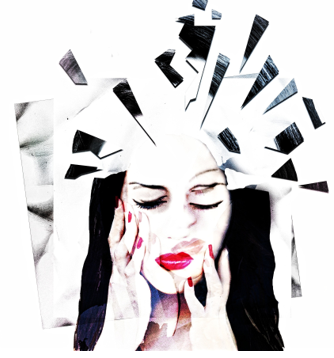The years of being a teenager and becoming a young adult are fraught with hormones and extreme emotions. The highs are high, and the lows are low. This is when they are coming into their sexuality and learning about themselves. This is likely when they’re experimenting with drugs and alcohol for the first time. They are likely having feelings for people they’ve never had before.

It’s no wonder why this is also the period that mental health issues arise. Their bodies and minds are changing. Whether you are a young adult yourself or have a child who is a teen, below are five prevalent mental health issues in this demographic and what can be done about them–medications or not.
Attention Deficit Hyperactivity Disorders
ADHD, or attention deficit hyperactivity disorders, used to be thought of as two conditions—ADD and ADHD. This is no longer the case. Science has improved to show that not only is ADHD a spectrum, but that it affects the lives of young people a lot more than we once thought. It makes school difficult for people who can’t focus, and hyperactivity can lead to anxiety and the inability to finish tasks they started. It is one of the most common mental health issues in young people, yet we have found out we know almost nothing about it. Luckily, medications for these conditions are becoming more accurate and effective.
Anxiety Disorders
Anxiety is often used as a term to describe fear or worry, but anxiety isn’t an emotion at all. It’s more of a feeling. Anxiety can be intensely physical, with the only symptoms being tightness in the chest and the inability to breathe. Of course, anxiety results in ruminative thoughts, obsessions, and delusions, but the physical element is not to be overlooked. Mindfulness practice, exercise, and avoiding alcohol can all mitigate symptoms, but there are also medications like psilocybin microdosing capsules that can help teens who are riddled with anxiety and can’t seem to get out of it.
Depressive Disorders
Depression is another common mental health issue. It should be distinguished from sadness and sorrow. Depression is not simply sadness; it is defined by lack of motivation and inability to do basic things. Seeking help through an IOP treatment nearby can provide crucial support for individuals struggling with depression. When someone is depressed, getting out of bed is a problem. Doing what they love is a problem. Doing anything is a problem. A lot of teens experience depression that eventually wanes, but someone with a depressive disorder will likely struggle with it for the rest of their lives. There is a spectrum of depression but when a teen or young adult gets diagnosed, they will have a better understanding of why they feel the way they do and what they can do about it. All the usual suspects—exercise, mindfulness, eating well, and getting the right amount of sleep—can help but medication may be necessary.
Manic Depressive Disorder
Manic depressive disorder, which is also called bipolar disorder, isn’t necessarily common, but the teenage and young adult years are when this mental health condition arises. When it comes to bipolar disorder in teenagers, medication is almost always necessary. It is difficult for anyone to live through manic episodes and deep depression, but it is particularly difficult for teens. When a teenager is diagnosed young, it’s a good thing because doctors will have to determine—by trial and error—how best to treat them. The right combination of medications usually needs to be found.
Obsessive Compulsive Disorder
Unlike the mental health issues above, obsessive compulsive disorder (OCD) doesn’t have a clear cause or treatment. There are therapies that can help like EMDR, eye movement desensitization reprocessing, and exposure therapy. Talk therapy might help too, but there is no real medication for OCD. Sometimes anti-depressants and anti-anxiety drugs can be used in tandem to mitigate symptoms, but there are a lot of side effects. OCD can be mitigated, but it takes a lot of work.
When a child starts to grow up, their body and mind change significantly. They are going through a sort of evolution. This is when mental health becomes more of a factor. Should you or your child have one or more of these mental health disorders, there’s nothing to panic about. Most people have something. It’s better to know and proceed to finding solutions than to not know at all.



